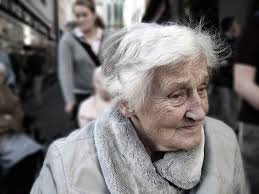
SM. Lutfur Rahman
A person mainly passes five stages in his lifespan. The stages are infancy, childhood, adolescence, adulthood and old age. Old age starts after sixty years of age and ends in death. According to World Population Ageing Report 2015, between 2015 and 2030, the number of people in the world aged 60 years or over is projected to grow by 56 per cent, from 901 million to 1.4 billion, and by 2050, the global population of older persons is projected to more than double its size in 2015, reaching nearly 2.1 billion. Over the next 15 years, the number of older persons is expected to grow fastest in Latin America and the Caribbean with a projected 71 per cent increase in the population aged 60 years or over, followed by Asia (66 per cent), Africa (64 per cent), Oceania (47 per cent), Northern America (41 per cent) and Europe (23 per cent).
Bangladesh is the eighth largest populated (164,722,580) and aged 60 years or over is projected to grow by 600,000. Traditionally, elderly people are revered in Bangladeshi society. However, along with changes to the traditional social institutions, these values of deference and respect of the elderly are also changing rapidly due to the impacts of modernization and urbanization. The numbers of nuclear and small size families are increasing while the traditional status and role of the seniors have at the same time reduced.
Elder abuse is any act which causes harm to an older person and is carried out by someone they know and trust. According to World Health organization "a single, or repeated act, or lack of appropriate action, occurring within any relationship where there is an expectation of trust which causes harm or distress to an older person". Elder abuse can take various forms such as financial, physical, psychological and sexual. It can also be the result of intentional or unintentional neglect. WHO estimates that 15.7% of people 60 years and older are subjected to abuse. These prevalence rates are likely to be underestimates as many cases of elder abuse are not reported.
The United Nations General Assembly, declared June 15 as World Elder Abuse Awareness Day (WEAAD). It is the main day in the year when the world voices its opposition to the abuse and suffering inflicted on older people. “Understand and End Financial Abuse of Older People: A Human Rights Issue” The 2017 theme underscores the importance of preventing financial exploitation in the context of elder abuse to the enjoyment of older persons’ human rights. In line with the 2030 Sustainable Development Agenda and the Madrid International Plan of Action on Ageing, older people have the right to a life of dignity in old age, free of all forms of abuse, including financial and material exploitation, which could lead to poverty, hunger, homelessness, compromised health and well-being, and even premature mortality.
The rights of the elderly are provided for in the Constitution of the People’s Republic of Bangladesh. As per Bangladesh constitution, the needy elderly people has a right to social security. This is one of the fundamental principles of state policy (article 15d) and fundamental rights (article 26-47A). Under the Contract Act, 1872 and the Law of Torts any mistreatment and failure in caring may be subject to a civil suit. The cause of action may be taken against the management of an institution for a breach in contract to care, even though there might not be a written contract; and damages can be claimed for the wrong done, however in the effort to alleviate elder abuse there is a need to seriously take cognizance of this relevant provision in the Penal Code under which a breach of contract may attract criminal liability. Elder abuse is also regarded as domestic violence. In Bangladesh, the Domestic Violence (Prevention and Protection) Act, 2010 recognizes violence toward older persons, and defines it as a breakdown in social relations between an older person and his or her family. Moreover, only older women may take action under this Act and lodge a report.
Parents’ Maintenance Act, 2013, this is the first legislation of its kind which not only recognizes the right to maintenance of the parents but also the grandparents in the absence of parents from both father and mother side. Under the Act, male and female children are equally responsible to maintain their parents and if there is more than one child they can ensure maintenance by consultation among themselves. Further, if any child does not provide maintenance to his/her parents without any reasonable ground or compels them to live in any parents care or any other place they will be punished under this Act.
Bangladesh faces an uphill task in addressing elder abuse. Therefore, the first priority would be to have a comprehensive legal framework or regime followed and supported by designated agencies or institutions for implementation purposes.
The writer is final year student, Department of Law, Daffodil International University, Dhaka.
good work
Downvoting a post can decrease pending rewards and make it less visible. Common reasons:
Submit
Good
Downvoting a post can decrease pending rewards and make it less visible. Common reasons:
Submit